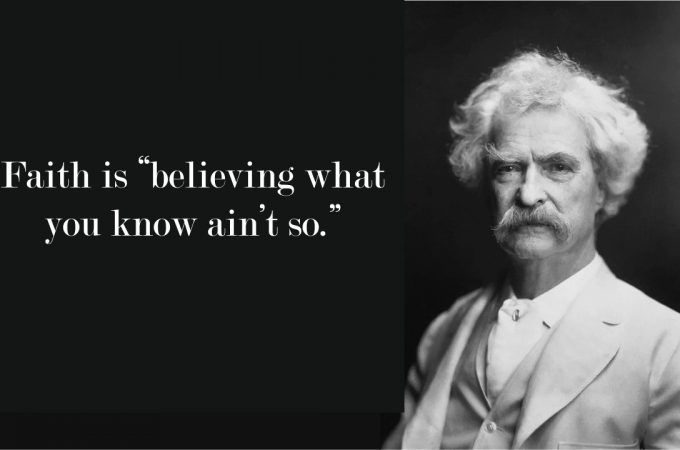 Evolutionary biologist Richard Dawkins is not kind to the notion of subjective belief: “Faith is the great cop-out, the great excuse to evade the need to think and evaluate evidence. Faith is belief in spite of, even perhaps because of, the lack of evidence.”
Evolutionary biologist Richard Dawkins is not kind to the notion of subjective belief: “Faith is the great cop-out, the great excuse to evade the need to think and evaluate evidence. Faith is belief in spite of, even perhaps because of, the lack of evidence.”
Mark Twain, another famous atheist, went further, defining faith as “believing what you know ain’t so.”
Somehow, Christianity has earned a reputation as an unthinking, gut-level system. In his foreword to his wife’s book, Finding Truth, J. Richard Pearcey makes a compelling case to show that the biblical record gives no place to this understanding of Christian faith.
It’s not every day that an avowed atheist and devout hymn writer agree.
First, from famed atheist Richard Dawkins: “Faith is the great cop-out, the great excuse to evade the need to think and evaluate evidence. Faith is belief in spite of, even perhaps because of, the lack of evidence.”
Second, these words from the composer of a beloved hymn: “You ask me how I know he lives? He lives within my heart.” Pastor and musician Alfred Ackley wrote the hymn “He Lives” when challenged by the question “Why should I worship a dead Jew?” His answer is that Jesus is not dead but is the resurrected Messiah. How does Ackley know? “He lives within my heart.”
What Dawkins condemns, Ackley approves. But note: both atheist and hymnist declare that “faith” is a matter of internal realities.
In contrast to this internalized definition of faith is the liberating call to “test everything” that infuses the Christian worldview and animates Finding Truth. In this vibrant mind-set, people are expected to think for themselves, question authority, examine evidence, and push for answers that make sense of our world.
We urge our readers to read Richard’s lucid argument in its entirety.






